-
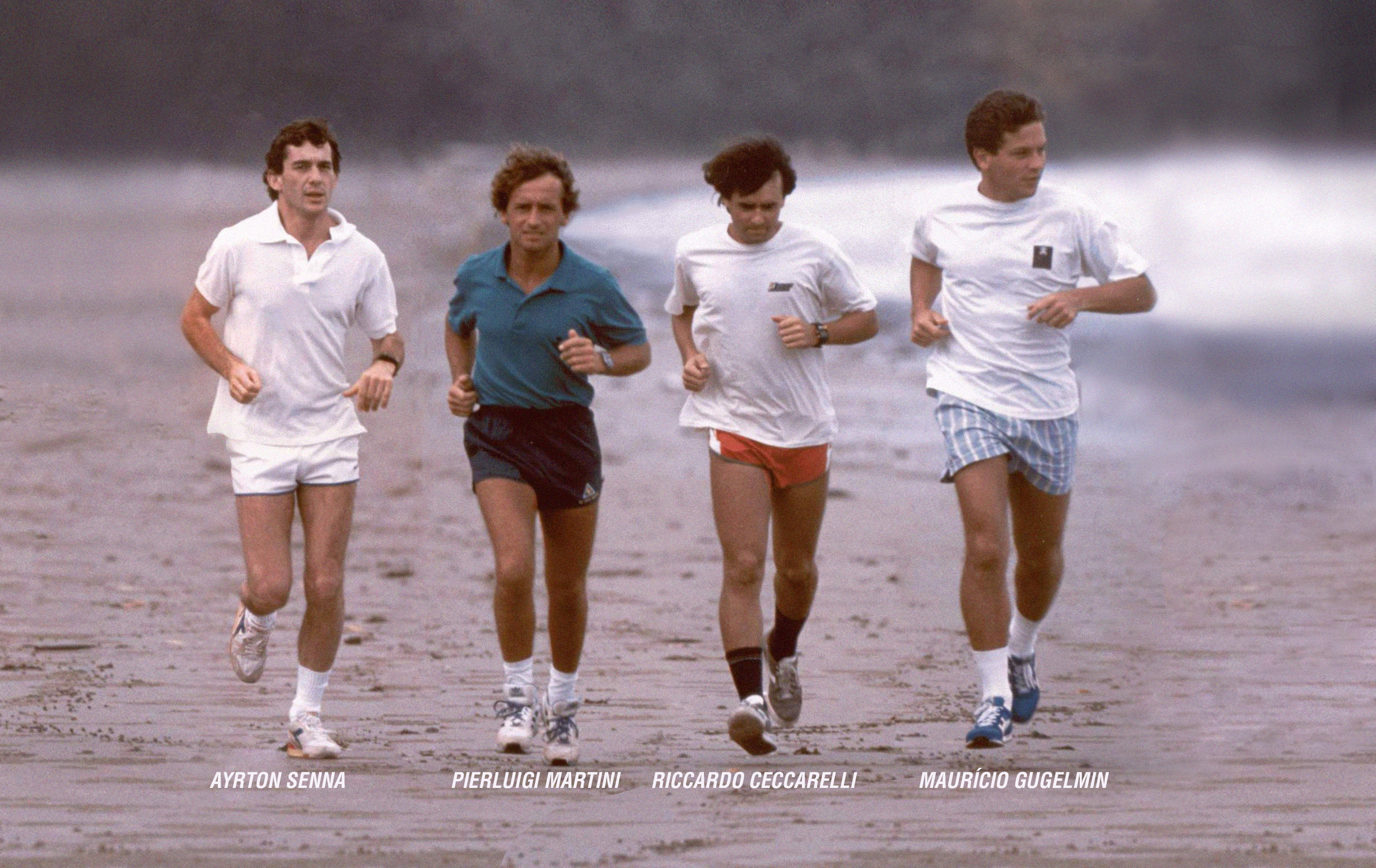
EXPERIENCE
"Since 1989 we have been present in the world of major international motorsport. A journey evidenced by a unique track record: 548 Grand Prix, 80 drivers and 19 Formula 1 teams assisted in over thirty years of physical trackside presence. In total we have collaborated with more than 1500 drivers from over 61 countries"
33 years at competitions

In those years in F.1 there was a complete lack of medical awareness and no one had ever studied the drivers’ exertion and workloads. Dr. Ceccarelli began a research program by having Ivan Capelli wear a heart rate monitor during the 1989 Hockenheim Grand Prix.


In 1990 the research continued with blood samples taken before and after GPs to study nutrition, hydration and stress levels.
In 1992 Dr. Riccardo Ceccarelli and Ivan Capelli moved to Ferrari. Unfortunately, the season wasn’t up to expectations.


1993 saw the start of seven years in Minardi F.1 team, the most productive period as regards scientific research due to the collaboration with Giancarlo Minardi and drivers Pierluigi Martini, Michele Alboreto, Luca Badoer, Pedro Lamy, Giancarlo Fisichella and Jarno Trulli.
Thanks to the unforgettable Michele Alboreto and in collaboration with the Pisa unit of the National Research Council, Dr. Ceccarelli installed an electrocardiograph in an F.1 car for the first time during the 1994 Japanese Grand Prix.


In 1995, in collaboration with Magneti Marelli, the driver’s electrocardiogram, heart rate and car position on the track were broadcast live during the Monza GP, for the first and only time in the history of F.1.
In 1995 Formula Medicine achieved another record by building the first F.1 driving simulator. Four electric motors generated the muscular load for arms and neck, while F.1 driver Nicola Larini tested it.

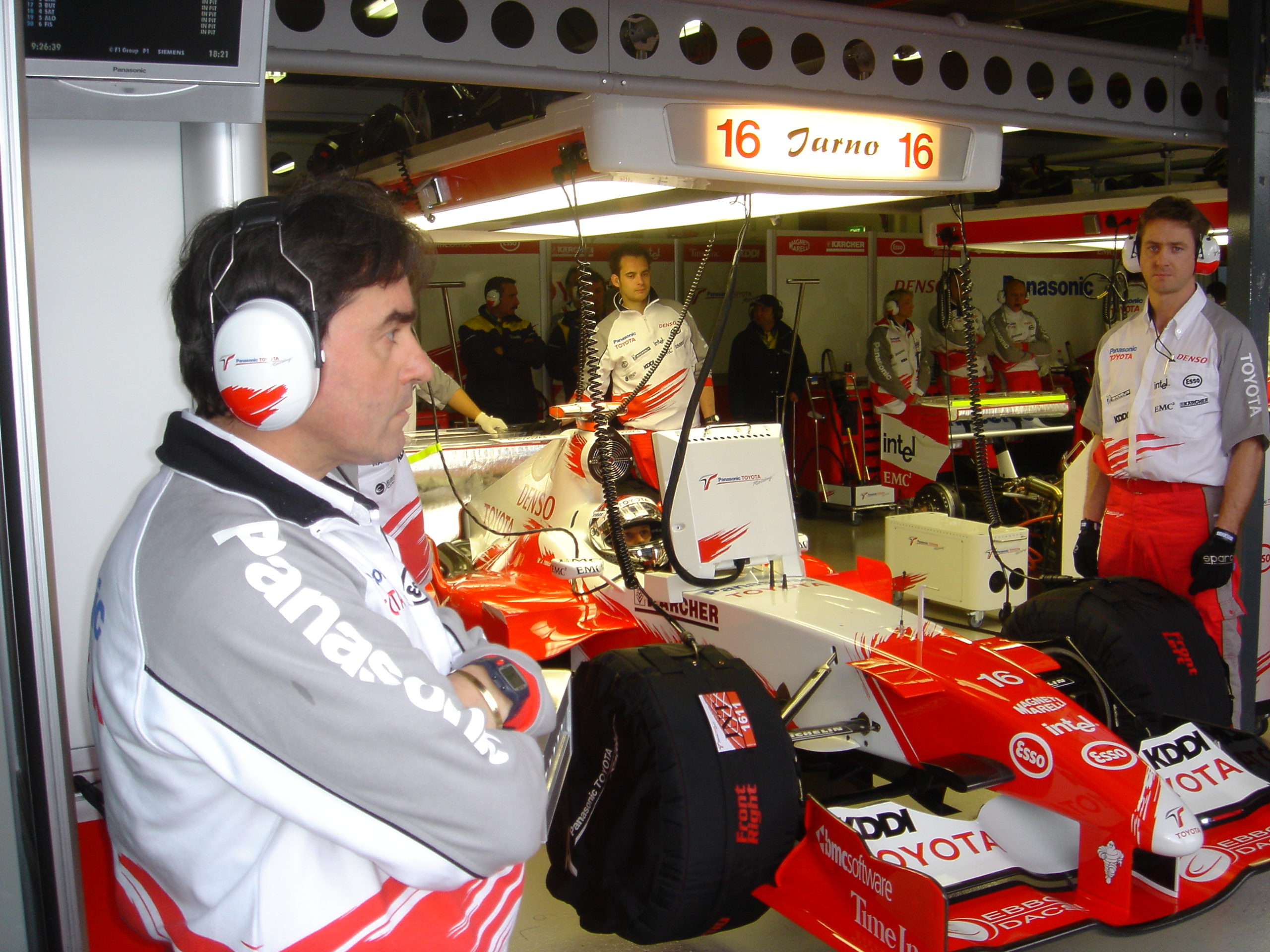
In 2000 Dr. Ceccarelli and the Formula Medicine team began their adventure with Toyota F.1, which ended when the Japanese manufacturer withdrew from F.1 at the end of the 2009 season.
In 2003 Formula Medicine began a long collaboration with Renault F.1, providing medical, athletic and physiotherapy services. The relationship with the team continued even after 2010 when Renault left F.1 and sold the team to Lotus.


Data collected on-track by Formula Medicine showed that race pace depends more on mental performance than physical performance. Scientific research into drivers’ brain function was started in 2003. The surprising results then led to the birth of Mental Economy Training®.
In 2003 and 2004 Formula Medicine collaborated with Scuderia Italia, winning two Super GT World Championships respectively with the crews Matteo Bobbi-Thomas Biagi and Fabrizio Gollin-Luca Cappellari. Also noteworthy is the 2004 victory at the prestigious 24 hours of Spa.

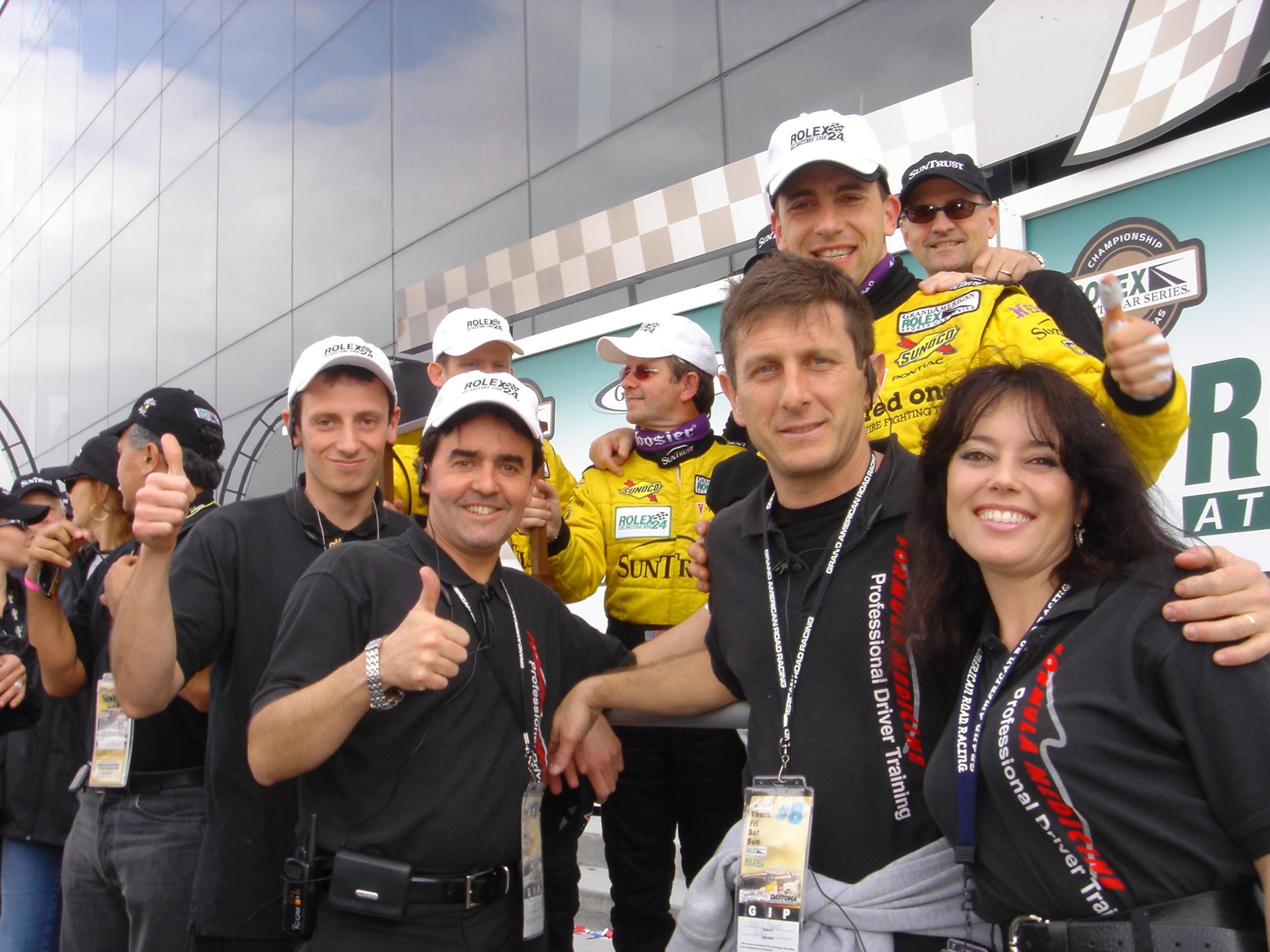
2005 saw the start of a long partnership with Wayne Taylor and Max Angelelli’s Team in the American IMSA championship, which led to two victories in the prestigious 24 hours of Daytona in 2005 and 2017.
As desired by the drivers, above all Michael Schumacher, in 2006 Formula Medicine was entrusted by all the F.1 teams with the task of supervising safety at F.1 tests. To date, the service is still active and has totalled 147 tests at 21 circuits with 20 professionals involved.


In 2006 Formula Medicine began its collaboration with another F.1 team, the Japanese Superaguri.
In 2007 the collaboration with Ferrari F.1 Team was resumed. Formula Medicine in fact provided physiotherapy assistance to Brazilian driver Felipe Massa at races.
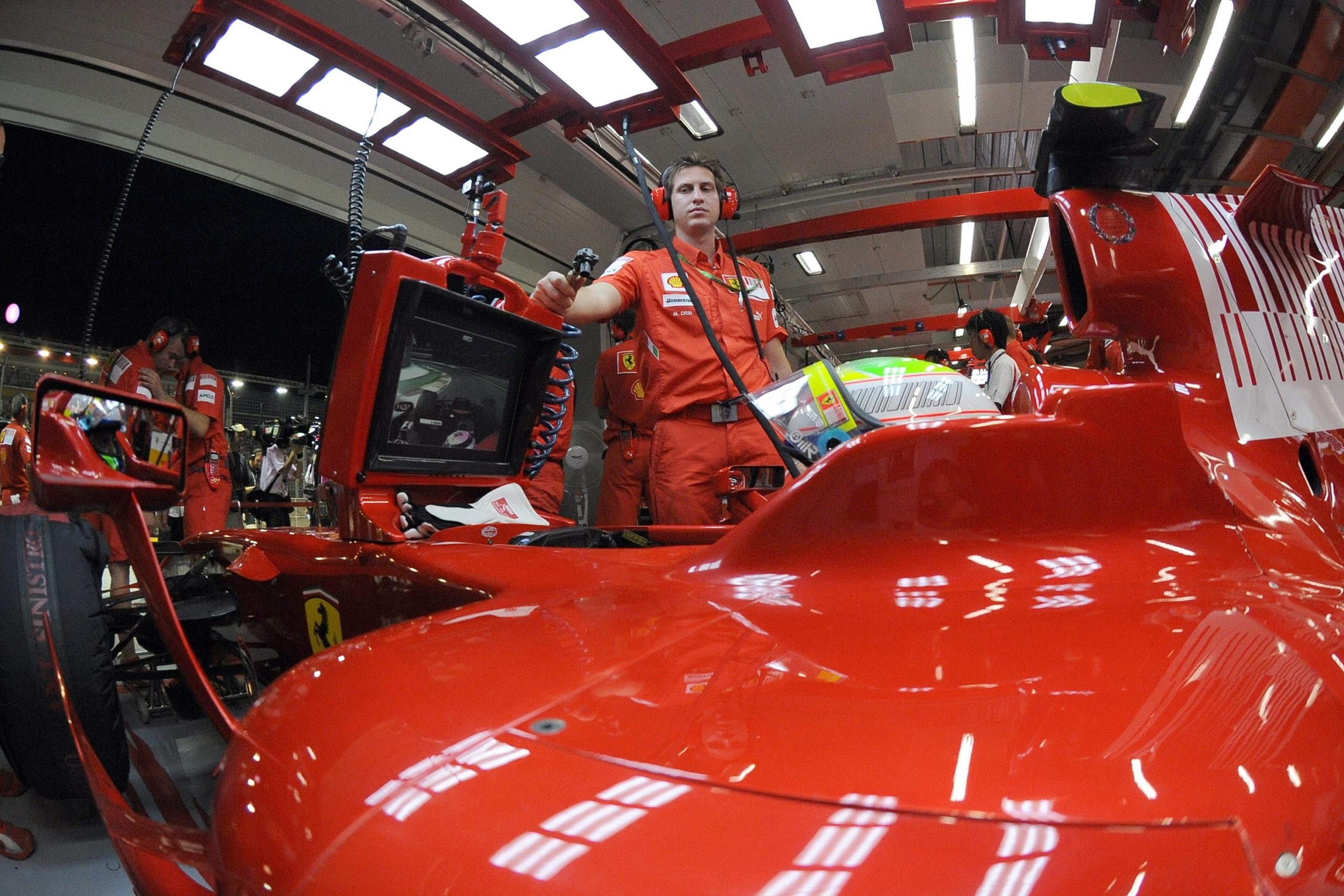
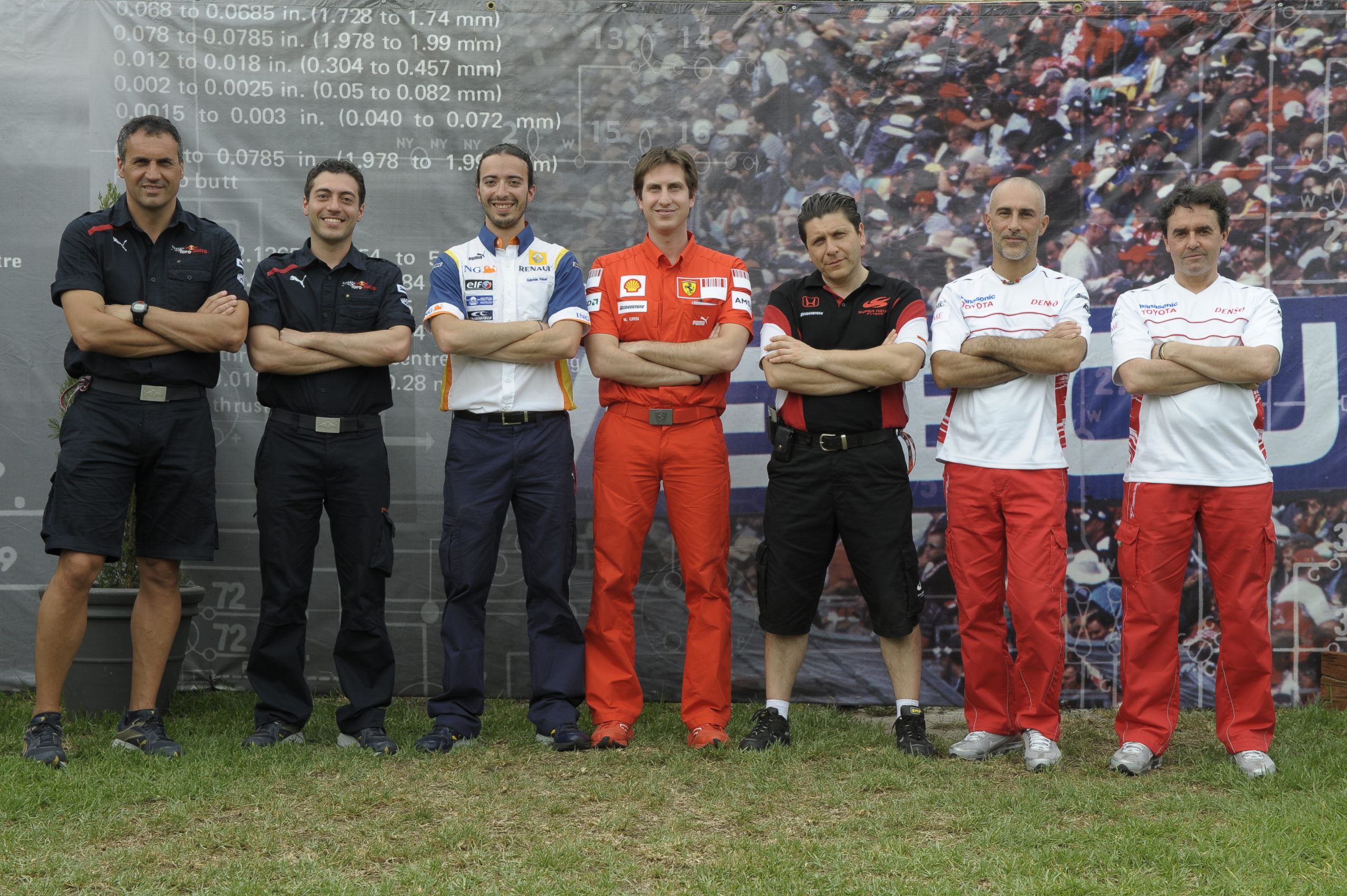
In 2008 another F.1 team was added, Toro Rosso, bringing the total to 5 teams assisted by 7 professionals working at circuits.
In 2012 BMW Motorsport entrusted Formula Medicine with the preparation and assistance of all its drivers. The highly successful partnership continues to this day. Noteworthy are the victories in the prestigious DTM Championship, in both driver and constructor categories.
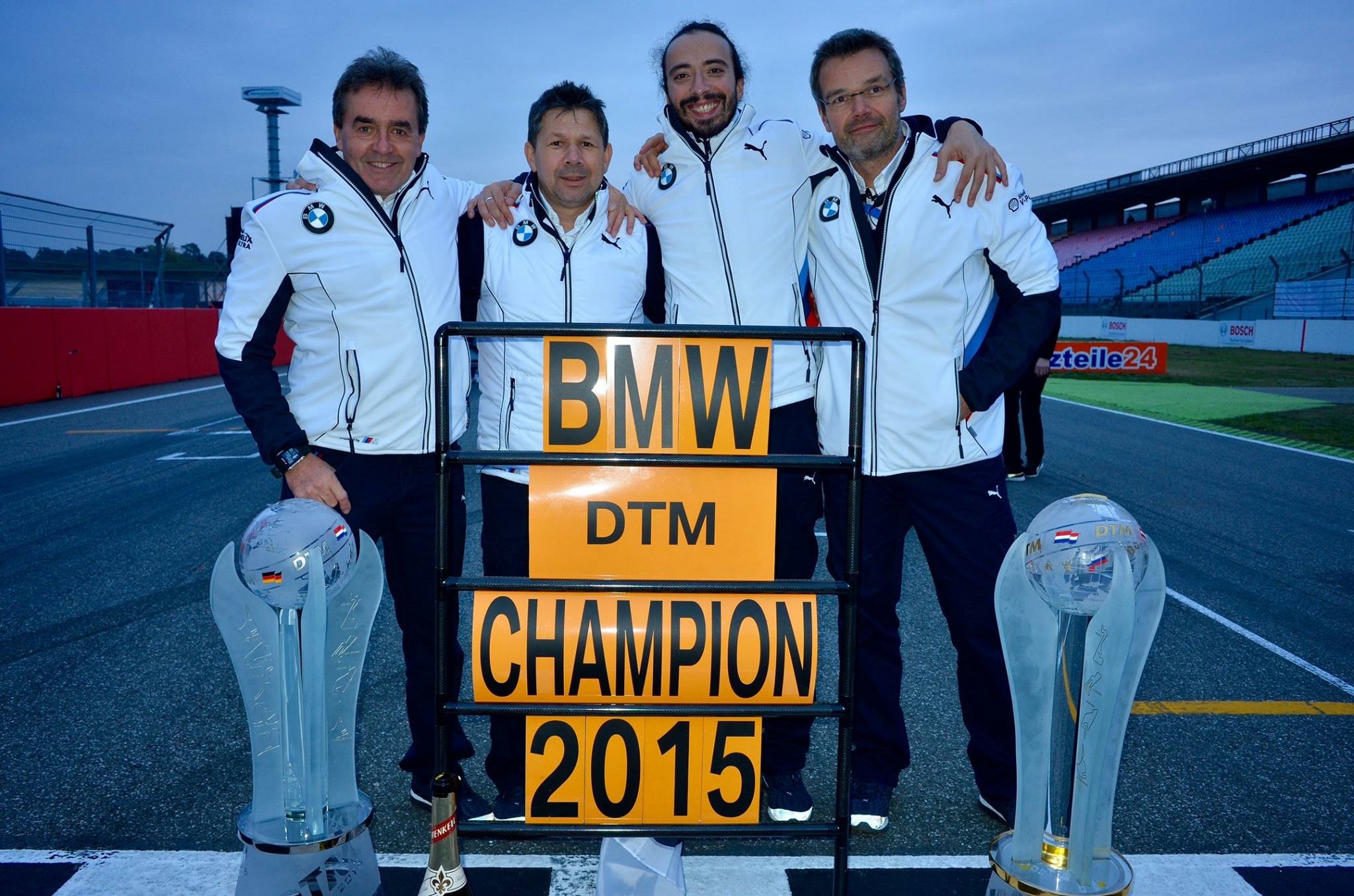

In 2013 the F.1 service was extended further. Today, 10 Formula Medicine professionals assist 7 F.1 teams at each race in addition to the staff of other groups including the Pirelli group and the staff of the F.1 organization, for a total of around 1300 people.
March 2016 saw the inauguration of the innovative Mental Economy Gym®, the first gym in the world exclusively dedicated to mental training.


In 2016 the collaboration between Formula Medicine and the Pramac Moto Gp Team begins. Danilo Petrucci and Scott Redding undergo psycho-physical training sessions, as well as being assisted during some races.
In 2017 the Pramac team and drivers also become partners in research, allowing Formula Medicine to continue to monitor the drivers. Petrucci and Redding in some races wear special sensorized shirts and chest straps for the detection of various biometric parameters.
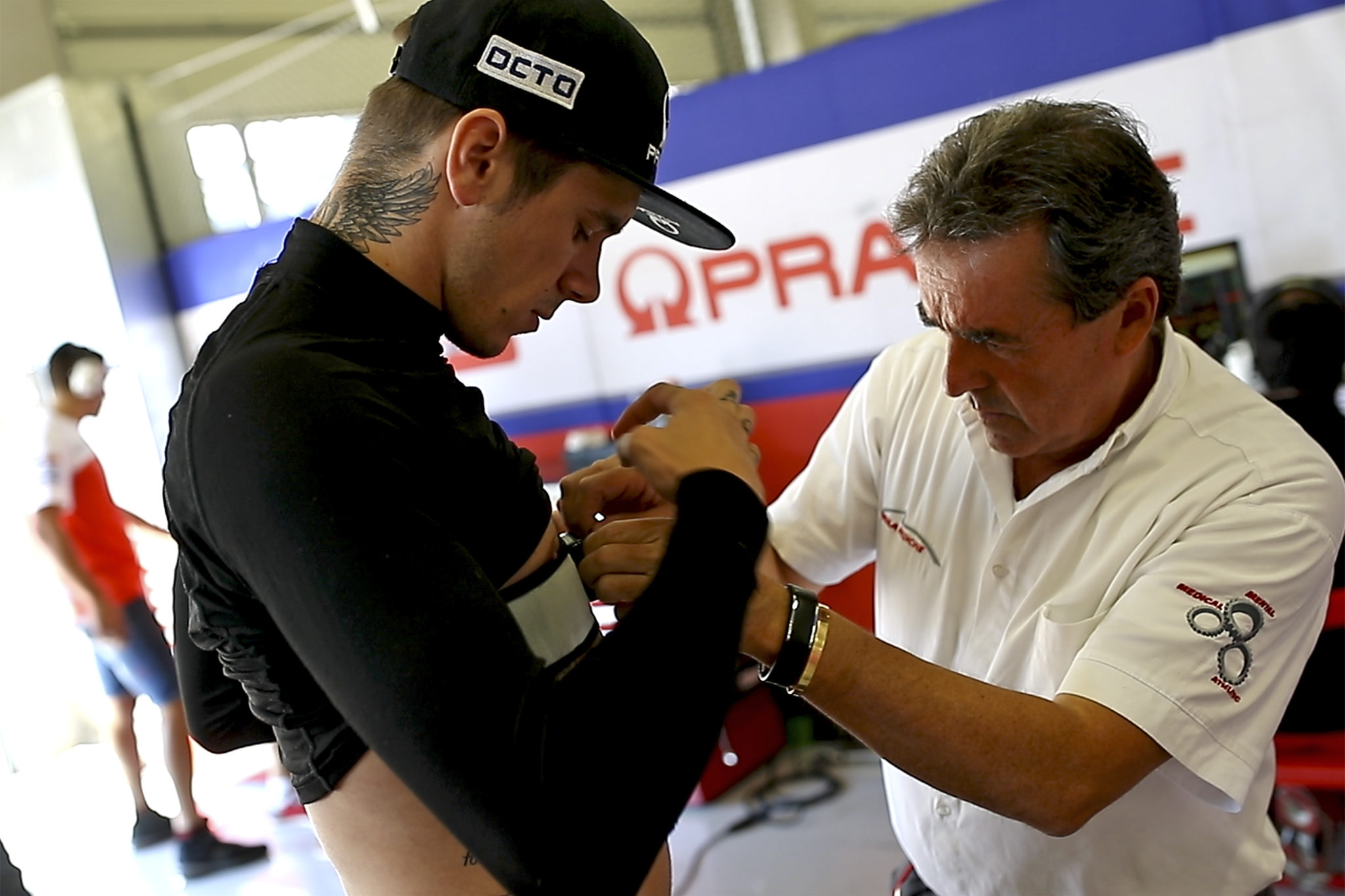
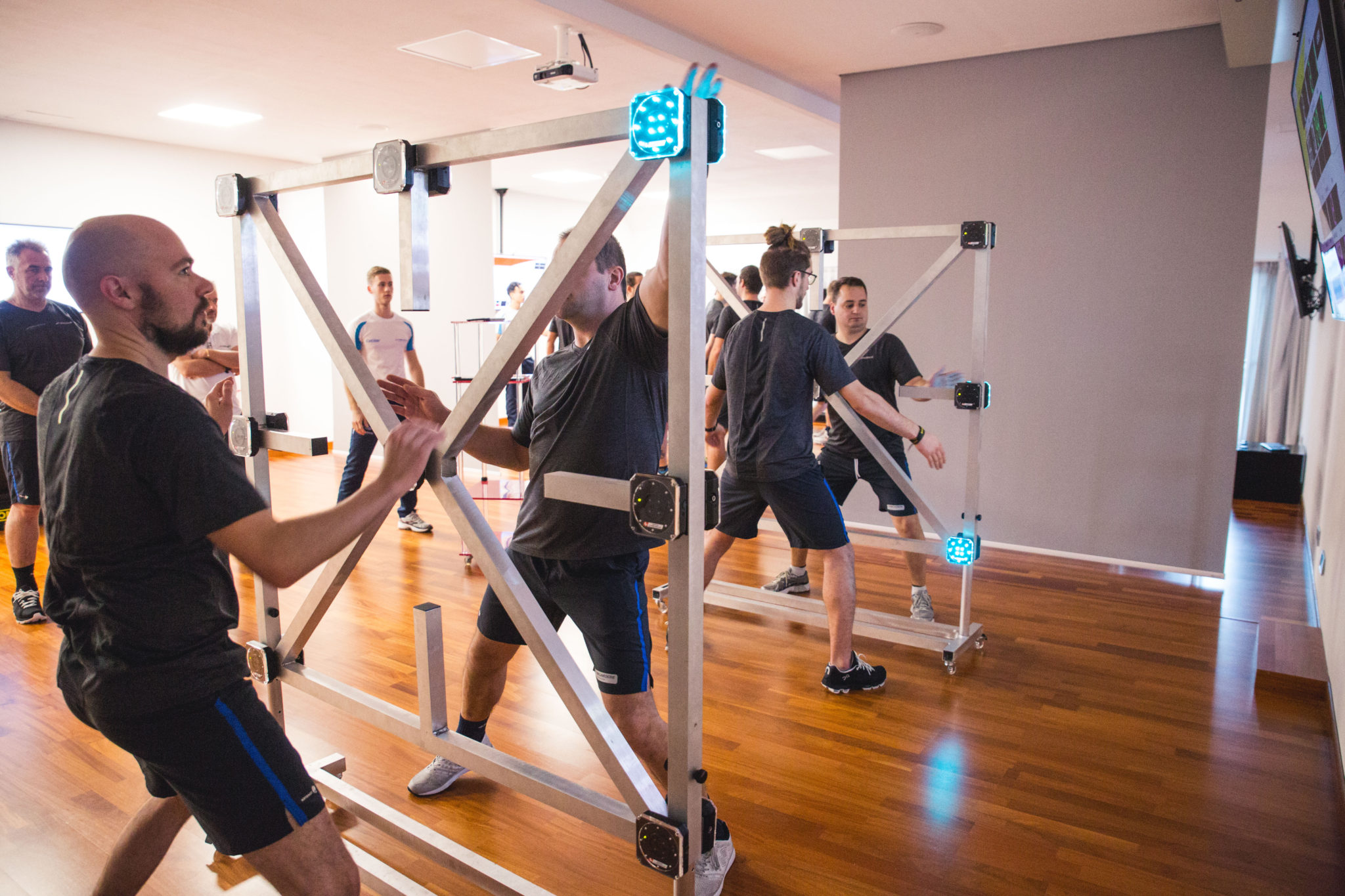
From 2018, training in Formula 1 is no longer an exclusive driver activity. The Sauber Team entrusts its Pit Stop Crew to Formula Medicine for psychophysical preparation.
Year after year, the Formula Medicine medical team’s commitments and responsibilities continue to expand. The need for rapid diagnoses and therapies which avoid time-consuming hospital transfers, in 2019 brings about the creation of FormuLab, a small diagnostic clinic set up inside the paddock. Thanks to DHL which provides part of its hospitality to host the clinic, Formula Medicine can now do blood tests, electrocardiograms and ultrasound scans directly inside the paddock.

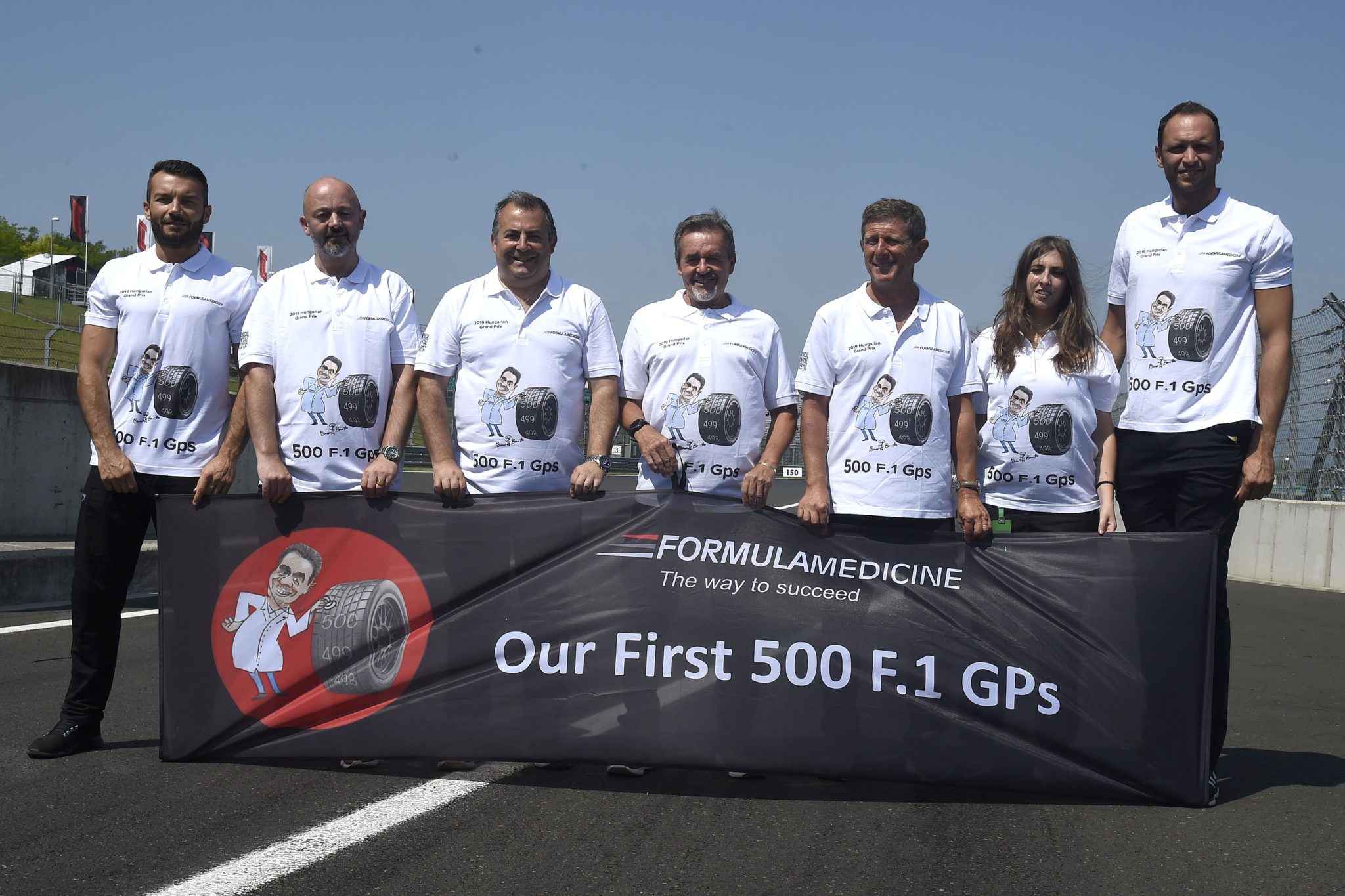
In 2019 Formula Medicine achieves two prestigious goals, which were unimaginable when this adventure started. In Budapest it celebrates its 500th GP, and with the Abu Dhabi GP a few months later it has been present at 50% of the entire Formula 1 history, having participated in 509 races out of a total of 1018.
January 2020 sees the inauguration of the second version of the Mental Economy Gym®, now equipped with even more advanced technological systems.
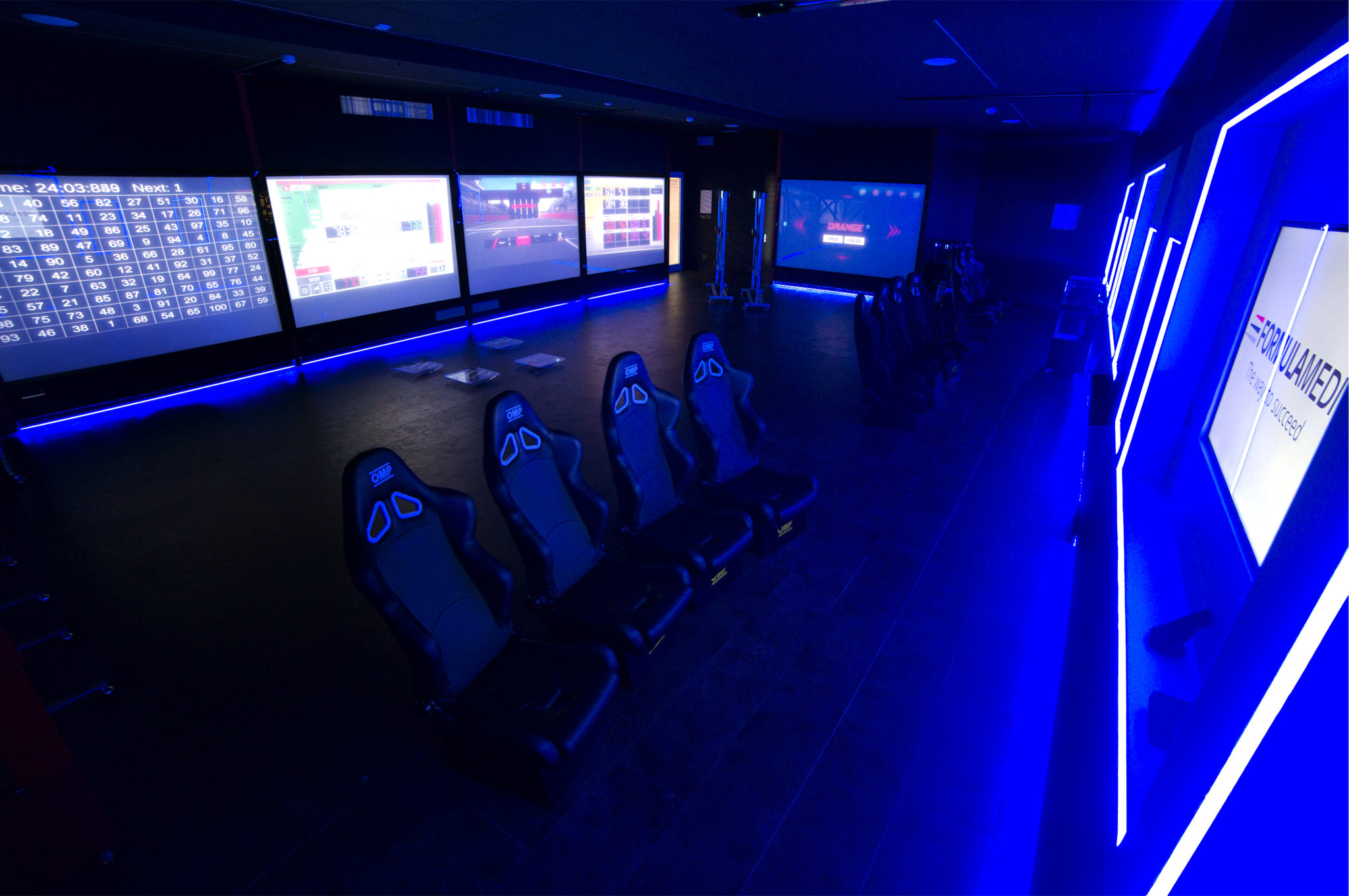
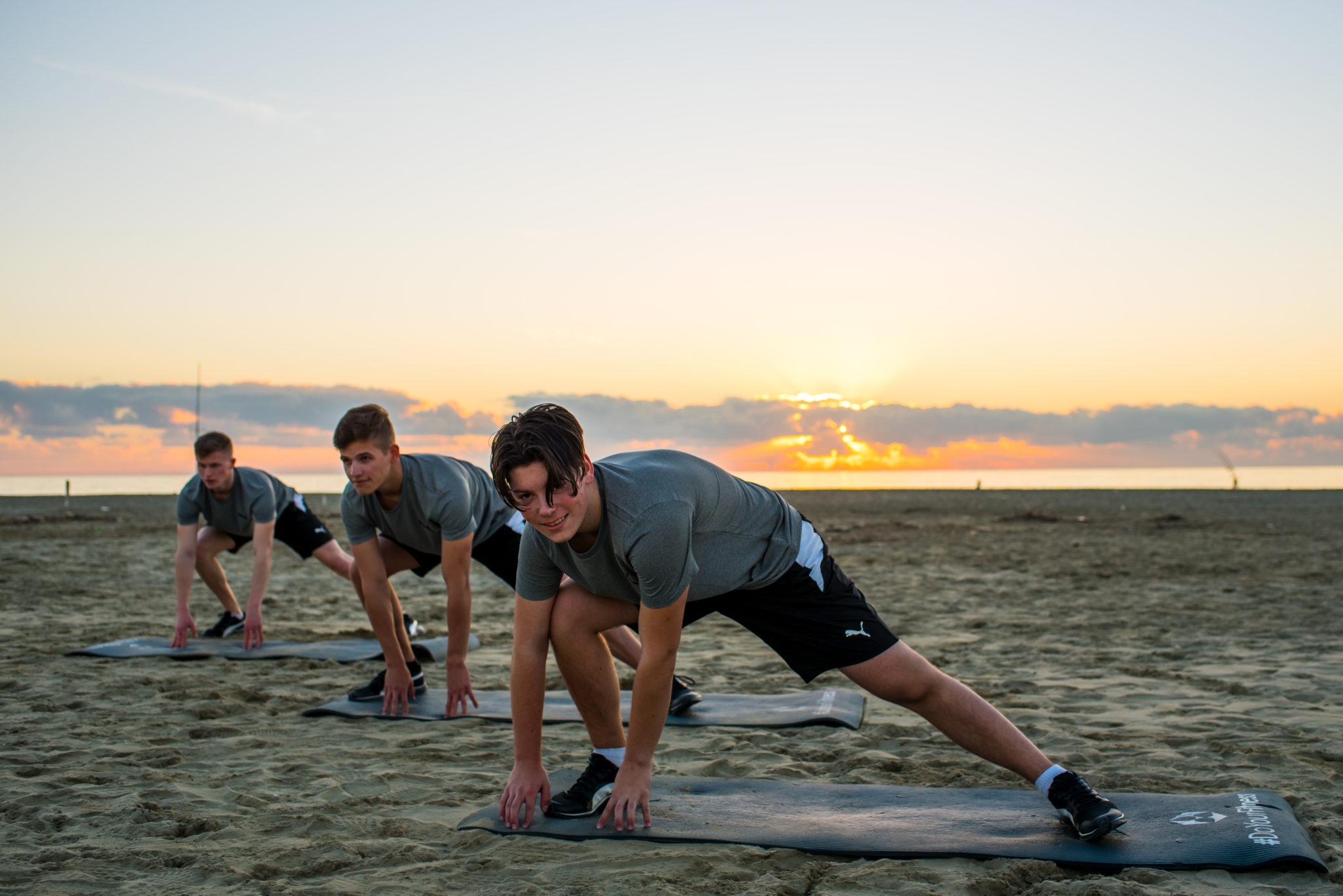
2020 also sees the birth of the BMW Motorsport Junior Driver program, and BMW entrusts the 3 young drivers to Formula Medicine to support them in their competitive growth. In addition to physical and mental training, the program also provides educational components regarding nutrition, supplements, sleep management and interpersonal relationships.
In 2020, Formula Medicine adds another prestigious 24 Hours race to its record of achievements, assisting BMW Motorsport, whose crew is first across the Nürburgring finish line after a marathon drive.

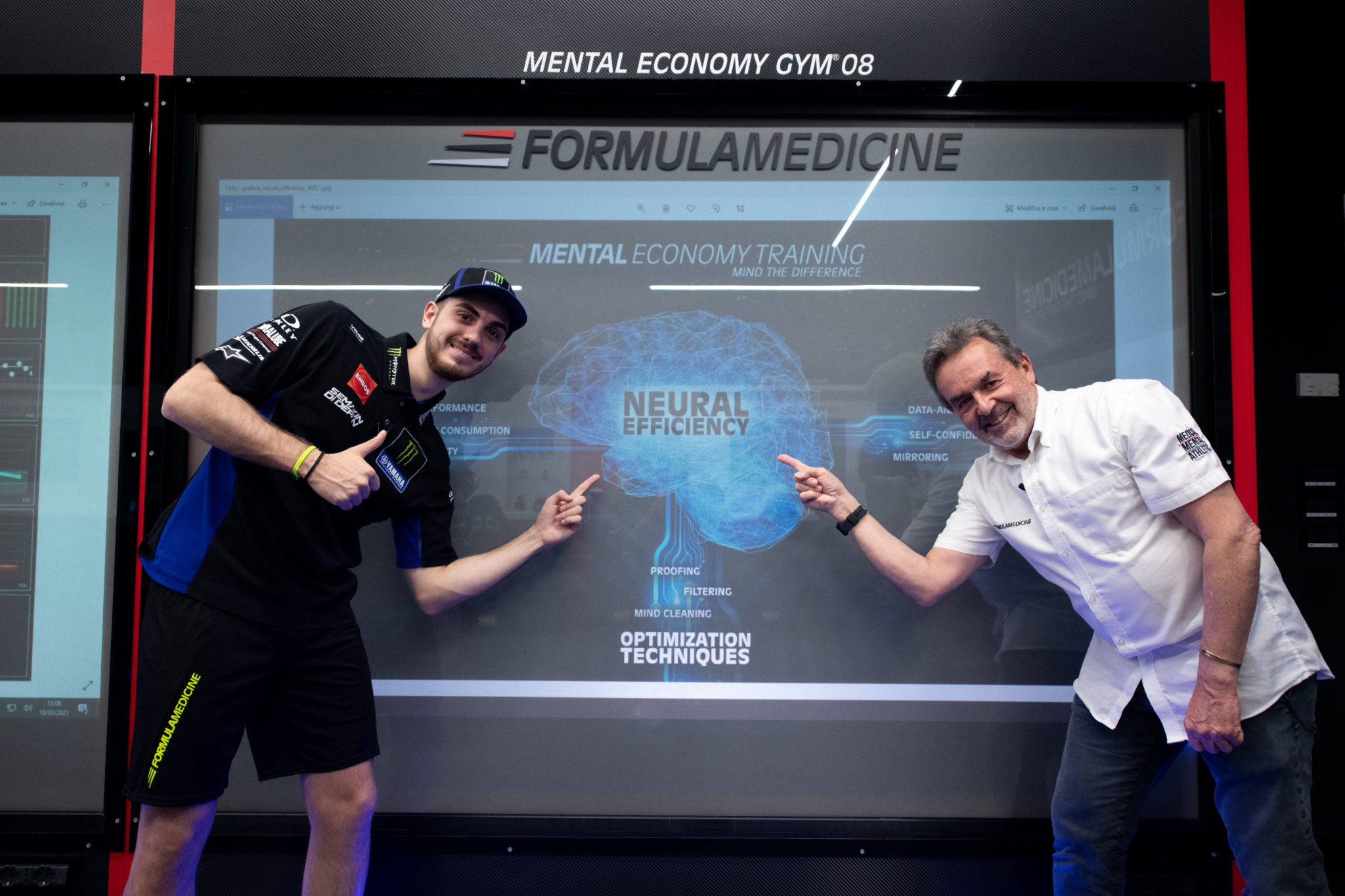
Still in 2020, Formula Medicine begins a new adventure in the eSports world. Sealing a partnership with Yamaha MotoGP, it becomes responsible for the psychophysical preparation of Lorenzo Daretti, two-time world champion and first official rider of the Monster Energy Yamaha MotoGP Team.
2021 brings in a new union, between Formula Medicine and Iron Lynx, a team that has been able, in just a few years, to reach important milestones in 7 different championships from single-seaters to covered wheels, including all the most prestigious 24-hour races. Ready, set, go, and this partnership already celebrates its victory at the 24 Hours of Spa.
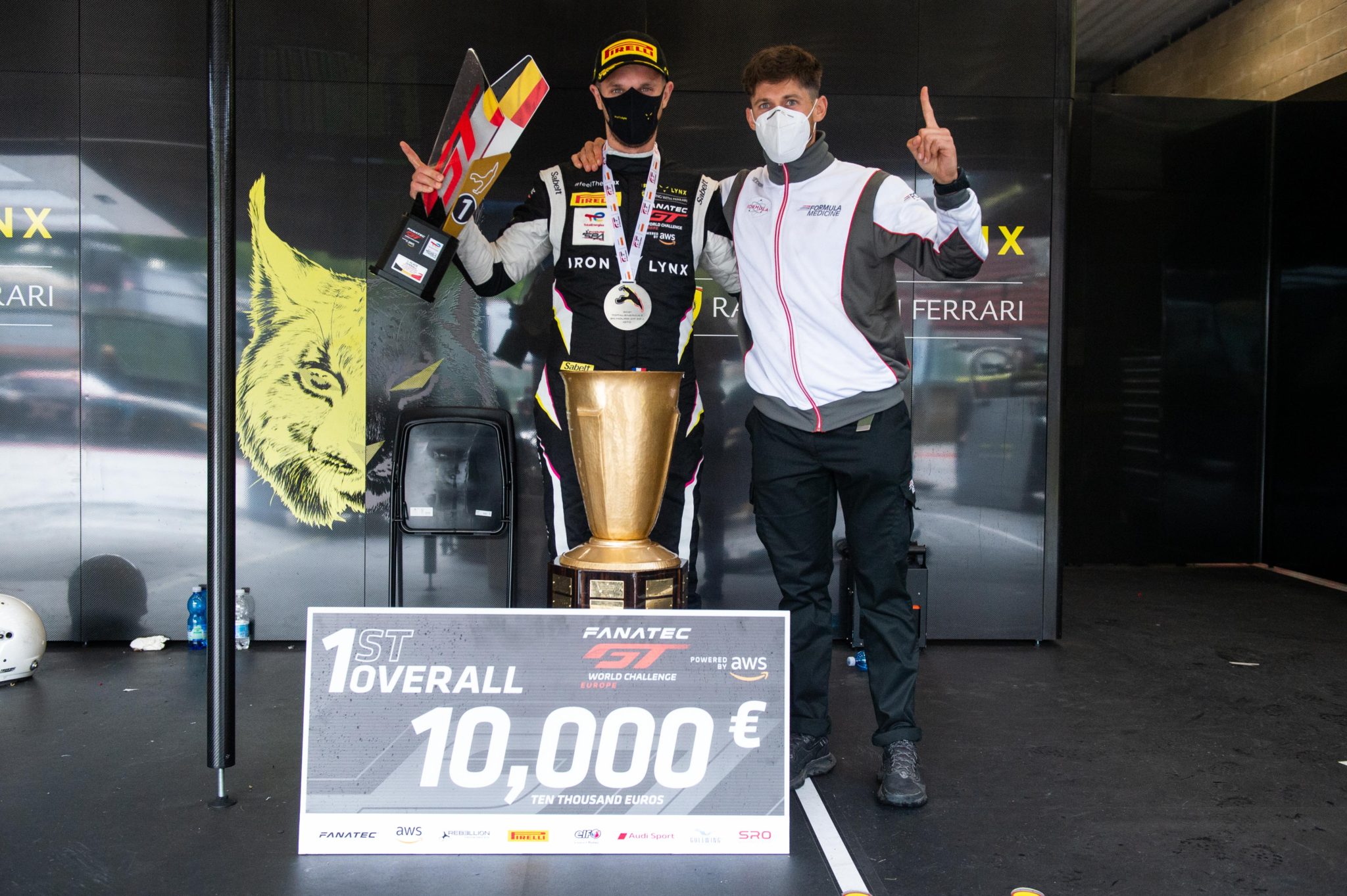

Formula Medicine has always had an eye on the world of go-karting, the cradle of future champions. In 2021 it reinforces its presence in kart paddocks, increasing the number of assisted drivers and forming an agreement with Tony Kart to support their drivers at races.
Formula Medicine’s technological developments never stop. Mental Economy Training® is gaining more and more success and athletes feel the need to also continue their training at a distance. In 2021 Formula Medicine provides the answer to the growing demand by creating a platform for mental training and a small portable carrycase, the Home Kit, which contains the devices for training both at home and on the road.
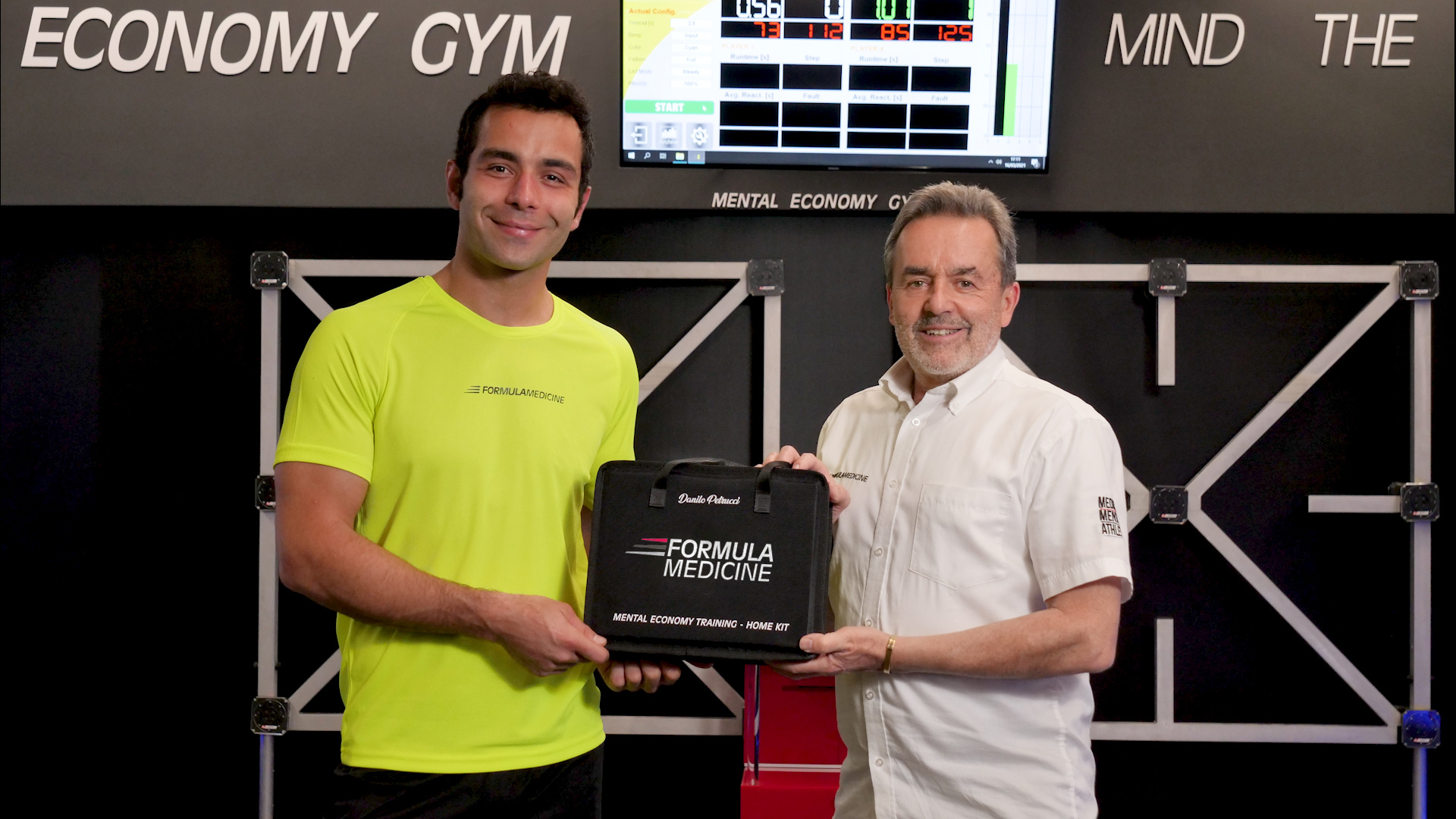

In March 2021, Mondadori publishes Dr. Ceccarelli’s new book, “Il Cervello Super Veloce” (Superfast Brain), available in bookstores and digital stores, which explains all the secrets of Mental Economy Training®.
In September 2021 a collaboration begins with one of the most prestigious international tennis academies, the Piatti Tennis centre. Formula Medicine’s staff creates a Mental Economy Gym at the Bordighera facility and takes care of the mental preparation of the athletes trained by Riccardo Piatti, including the latest of his many victorious challengers, the young Jannick Sinner, who enters the world top ten ranking two months later.
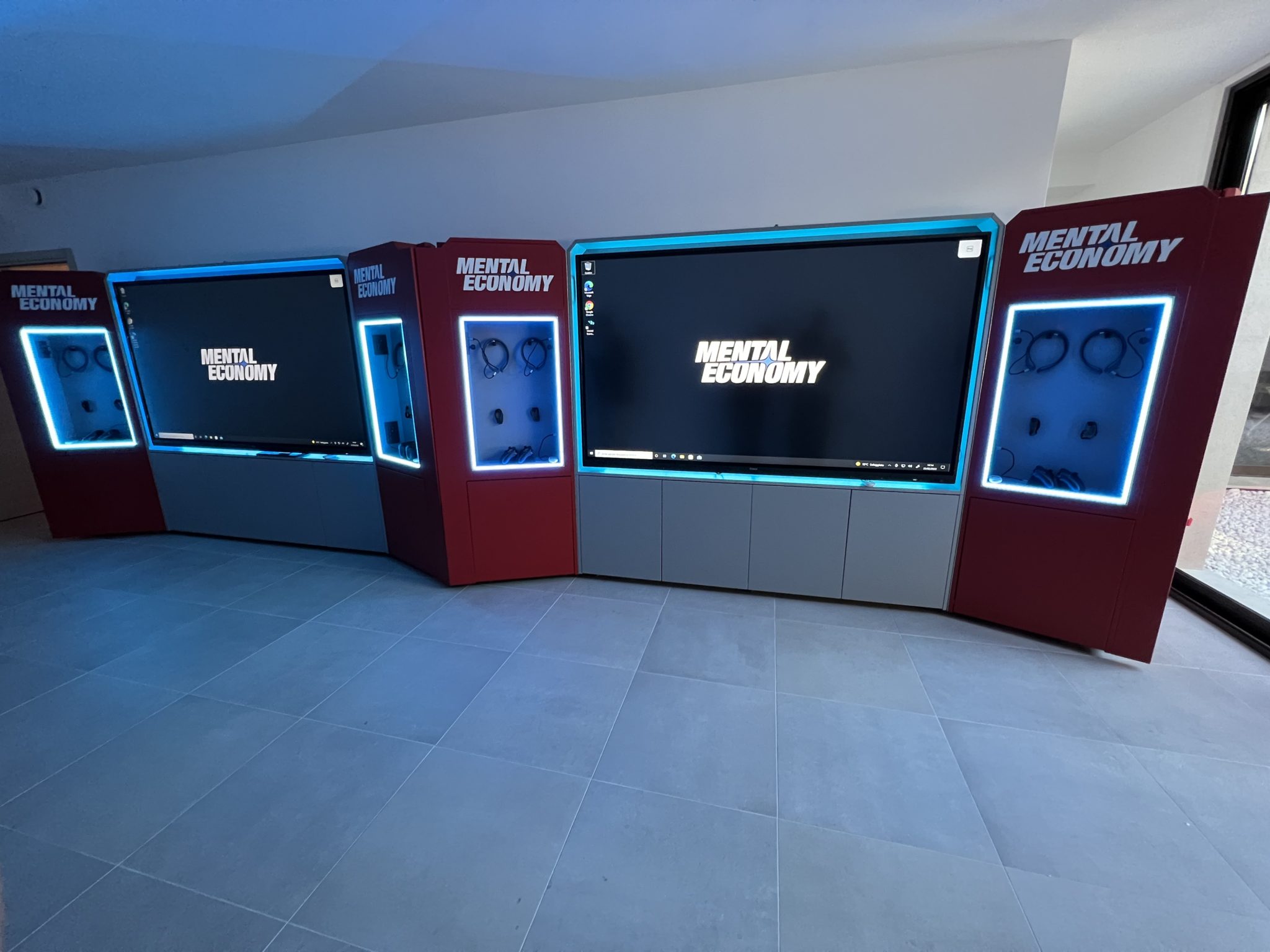
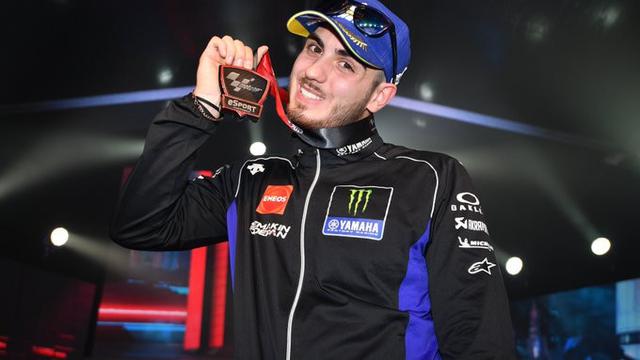
In November 2021 Formula Medicine celebrates with Lorenzo Daretti and Team Yamaha after the victory in the MotoGP Esport world championship.
